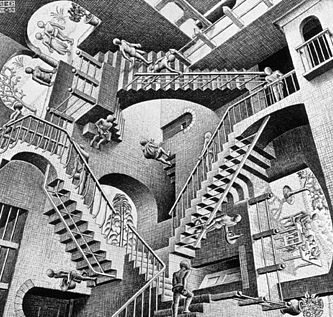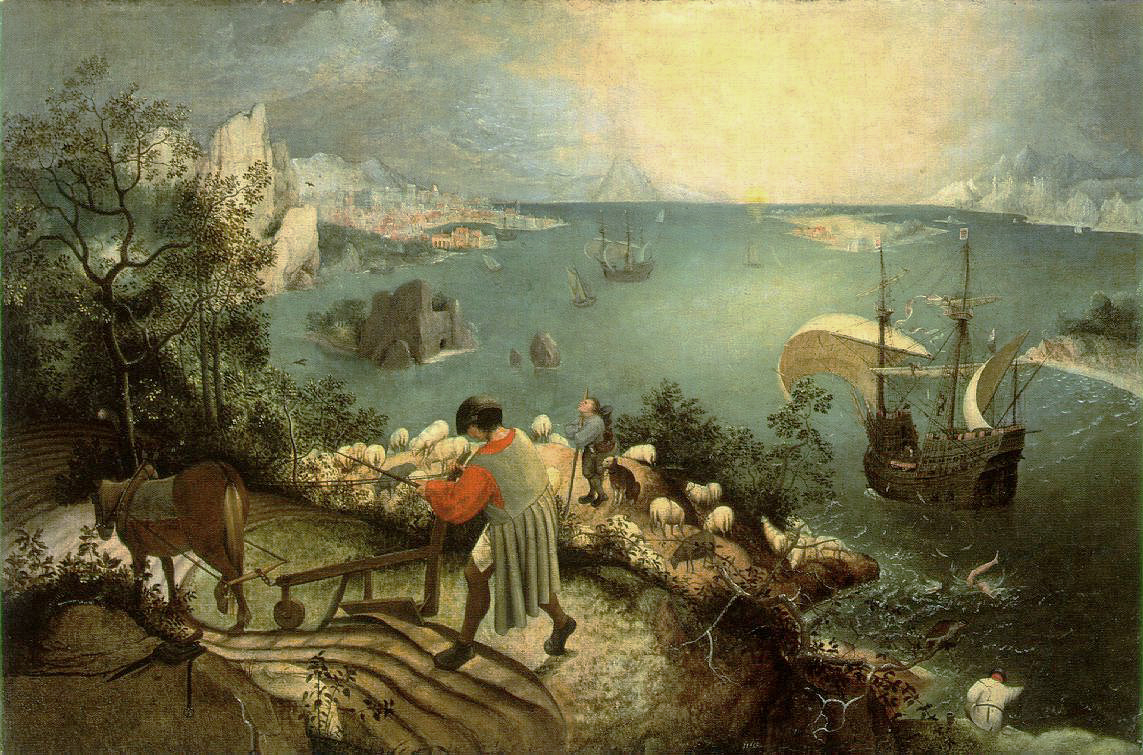Neuroscience
- Challenge The Status Quo: Strengths And Limitations Of Academic Freedom
Undergraduates of America, The time to change history is yours. It's likely that you've spent most of your life growing up in a bubble. It might be true that, in your hometown, you never knew much about the world around you. You may have...
- Academic Burnout: Taking Breaks And Breaking Habits
“It isn’t the mountains ahead to climb that wear you out; it’s the pebble in your shoe.” — Muhammad AliThough this saying has been around long before Muhammad Ali, I think this sentiment explains the ways we forget about what's really important...
- The (wrong) Reasons To Become A Doctor: A Medical Ethicist's Perspective
This post is written from the point-of-view of pre-medical students, but I believe the issues and topics that I discuss can be applied to any undergraduate student who has a desire to learn. As we search for meaning in our lives, we worry most about...
- The Appropriate Rhetoric On The Purpose Of A College Education
Since I was a young high schooler, I've felt uncomfortable with the way I am expected prepare for college, and, even in college, this fear has not subsided. I've never been able to shake off the pressure to fit myself into a mold to please future...
- Learning Why We Learn: A Call To Action For All Undergraduates
Last month, I attended the CSRES Symposium "Wonder and the Natural World", and I had a chance to listen to a speech by Dr. Richard Gunderman, Professor of Liberal Arts at the IU School of Medicine. (He actually completed an MD-PhD in Philosophy, and...
Neuroscience
On the Value of a College Education: A Philosophy Professor's Perspective
Why do we go to college? Surely, we know that spending four years to get a degree should have much more value than just sitting through a few tests and racking up lines on a resume. We oughta learn how to think, for “an undergraduate experience devoted exclusively to career preparation is four years largely wasted.” (Deresiewicz). Are we here to prepare ourselves for a future career? Or do we need ot embrace deeper meanings behind the things that we study? On top of that, what significance does the different approaches to education put forward by professors have on the way that we think and grow as human beings? Recently, I've been speaking to a few of my professors about the value of a college education.
Throughout my undergraduate experience, none of my classes have come close to answering these sorts of questions except for my Problems in Ethics course last Fall. The Professor, Wiebke Deimling (currently a Professor of Philosophy at Clark University), covered the theory of emotions as well as ethical topics in art. Most of the course focused on those philosophical problems that drive artwork and literature as well as the rest of society as we learn how draw meaning from ourselves. The topics of emotion, value, and history can be placed in the light of biological sciences, psychology, literature, from the existential to the physical.
During a regular old powerpoint presentation in the class, a few bullet points on a single slide sparked a flurry of questions that would allow me to begin asking the questions of the purpose of a college education to my professors. Specifically, on slide 24 of the powerpoint entitled "21 Gaut and Caroll", key words "moralism" and "moderate autonomism" juxtaposed the issues of moral and political engagement (post-60's) and minimalism (pre-60's), respectively. These words "moralism" and "moderate autonism" describe different ideologies that explain the significance of art. "Moralism” (at least, in its most radical sense) maintains that art must serve a moral purpose. "Autonomism" usually emphasize the aesthetic, as opposed to ethical, value. Though we have seen, time and time again throughout history that works of art can have political and social influence on human beings, it may be surprising to learn that the idea of moral value being relevant to the aesthetic value of a work is enough to ruffle the feathers of quite a few different thinkers (including Leo Tolstoy and Clive Bell). If I am not mistaken, I believe that this schism between the two forms of appreciation of art parallels the distinction between how we are pressured to learn for utilitarian purposes or curiosity's sake. And, as the powerpoint slide depicted, it seems as though the shift between these two ideologies of art appreciation over the 20th century is similar to the shift in the purpose of our college education.
Recently, I asked Professor Deimling for her opinion on different issues that plague the minds of undergraduates. She explained how the primary goal of a college education should not be to prepare someone for a future career. Not only does it cause us to miss the value of any academic discipline that we encounter, we really couldn't do something like this. The college administration don't know exactly what will be the best things to know for future careers or be able to do for future careers. Granted, I'm sure we could write out some skills such as being able to learn efficiently, act ethically, think creatively (maybe not all the time, though!), or various other one-liners that flourish networking sites. But the idea that a college education should be geared towards career preparation would never be able to achieve any thing like this.
If there are different ways to value art, be it a stunning image that gives an otherworldly feeling or a political message that wakes up a voice of reason, then who isn't to say that it might parallel our value of education? We must be very careful before drawing too many comparisons between fields that are tangential to one another, and we mustn't let a the evidence for making claims in one field compensate the need for justification in another. I don’t know whether or not this parallel is superficial or incredibly profound. If we truly listen to ourselves, then a moral purpose may be our primary goal of education that is underlined by a deeper need to search for truth. Pursuing academic disciplines may serve an aesthetic purpose in the same way that art does, and, though we don't have the answers yet, we can at least free ourselves from the chains that bind us to the prospects of a good life and take a step or two towards the small drops of daylight that enter our cave.
For now, maybe undergraduates should just stick to cramming for tests and getting free t-shirts until we get better answers.
Throughout my undergraduate experience, none of my classes have come close to answering these sorts of questions except for my Problems in Ethics course last Fall. The Professor, Wiebke Deimling (currently a Professor of Philosophy at Clark University), covered the theory of emotions as well as ethical topics in art. Most of the course focused on those philosophical problems that drive artwork and literature as well as the rest of society as we learn how draw meaning from ourselves. The topics of emotion, value, and history can be placed in the light of biological sciences, psychology, literature, from the existential to the physical.
During a regular old powerpoint presentation in the class, a few bullet points on a single slide sparked a flurry of questions that would allow me to begin asking the questions of the purpose of a college education to my professors. Specifically, on slide 24 of the powerpoint entitled "21 Gaut and Caroll", key words "moralism" and "moderate autonomism" juxtaposed the issues of moral and political engagement (post-60's) and minimalism (pre-60's), respectively. These words "moralism" and "moderate autonism" describe different ideologies that explain the significance of art. "Moralism” (at least, in its most radical sense) maintains that art must serve a moral purpose. "Autonomism" usually emphasize the aesthetic, as opposed to ethical, value. Though we have seen, time and time again throughout history that works of art can have political and social influence on human beings, it may be surprising to learn that the idea of moral value being relevant to the aesthetic value of a work is enough to ruffle the feathers of quite a few different thinkers (including Leo Tolstoy and Clive Bell). If I am not mistaken, I believe that this schism between the two forms of appreciation of art parallels the distinction between how we are pressured to learn for utilitarian purposes or curiosity's sake. And, as the powerpoint slide depicted, it seems as though the shift between these two ideologies of art appreciation over the 20th century is similar to the shift in the purpose of our college education.
 |
| Eschers's "Relativity" Hofstadter's "Godel, Escher, and Bach" relate the worlds of music, art, and mathematics |
 |
 |
| The light at the end of a midterm paper |
For now, maybe undergraduates should just stick to cramming for tests and getting free t-shirts until we get better answers.
- Challenge The Status Quo: Strengths And Limitations Of Academic Freedom
Undergraduates of America, The time to change history is yours. It's likely that you've spent most of your life growing up in a bubble. It might be true that, in your hometown, you never knew much about the world around you. You may have...
- Academic Burnout: Taking Breaks And Breaking Habits
“It isn’t the mountains ahead to climb that wear you out; it’s the pebble in your shoe.” — Muhammad AliThough this saying has been around long before Muhammad Ali, I think this sentiment explains the ways we forget about what's really important...
- The (wrong) Reasons To Become A Doctor: A Medical Ethicist's Perspective
This post is written from the point-of-view of pre-medical students, but I believe the issues and topics that I discuss can be applied to any undergraduate student who has a desire to learn. As we search for meaning in our lives, we worry most about...
- The Appropriate Rhetoric On The Purpose Of A College Education
Since I was a young high schooler, I've felt uncomfortable with the way I am expected prepare for college, and, even in college, this fear has not subsided. I've never been able to shake off the pressure to fit myself into a mold to please future...
- Learning Why We Learn: A Call To Action For All Undergraduates
Last month, I attended the CSRES Symposium "Wonder and the Natural World", and I had a chance to listen to a speech by Dr. Richard Gunderman, Professor of Liberal Arts at the IU School of Medicine. (He actually completed an MD-PhD in Philosophy, and...
